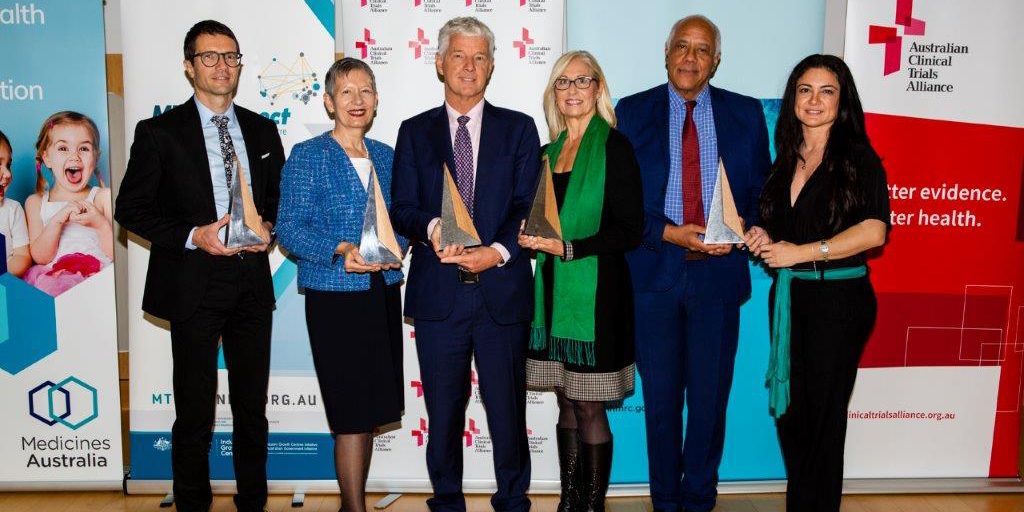
Double Honours for The George Institute in the Trial of the Year Awards
The expertise of The George Institute at conducting trials with global impact was recognised at The Australian Clinical Trials Alliance’s (ACTA) Clinical Trial of the Year Awards.
The George Institute was rewarded with being a finalist the trial of the year for the ADRENAL trial into septic shock. The statistical analysis for ADRENAL trial also won the STING award for statistical excellence.
The awards ceremony took place at the Royal Children’s Hospital in Melbourne and was attended by The George Institute’s Dorrilyn Rajbhandari, Project Manager in the Critical Care Division and Associate Professor Laurent Billot, Director of the Statistics Division, who led the statistical analysis alongside Qiang Li.
The George Institute’s Chief Scientist Professor Anushka Patel said the recognition was testament to the world-class work being produced by The George Institute and the Critical Care Team.
“There are very few research institutes in the world that are equipped to carry out such large multi-country studies that deliver real impact and change. The ADRENAL study will improve treatment for critically ill patients and also deliver savings to health systems globally.”
Researchers at The George Institute for Global Health studied whether the use of steroids as an additional treatment to septic shock - a severe life threatening infection - would improve survival.
In the results published in the New England Journal of Medicine they found steroids not only reduced the duration of septic shock, but also the time spent on life support therapy in intensive care. However, the use of steroids did not lead to fewer deaths overall compared to not receiving steroids.
Associate Professor Billot said: “We knew that the ADRENAL trial was likely to have substantial impact. Our goal was to make sure the statistical analysis was as ‘robust’ as possible. In particular, we paid a lot of attention to the statistical analysis plan to ensure a high degree of precision and transparency. We are very pleased to be recognised with the “Excellence in Trial Statistics” award”.
Lead author of the ADRENAL study Professor Bala Venkatesh, of The George Institute, said:
“It’s a great honour to be a finalist in this prestigious awards. Sepsis does not discriminate and around a quarter of people with the disease will die. And many more will be left with life-long disabling conditions such as amputations.
“This award will help raise much needed awareness about sepsis. It also highlights the importance of such trials as ADRENAL that are enabling us to learn more about sepsis and improve survival rates and better outcome for patients the world over.”
“As well as proving that hydrocortisone reduced the severity and duration of shock, lowered time on life support and meant shorter hospital admissions, the ADRENAL study was the first Australian ICU trial to be included in the Portfolio of the National Institute of Health Research, UK, facilitating UK resource support. The ADRENAL team also developed and manufactured a GMP-licensed internationally exportable parenteral placebo formulation, creating a valuable resource for future triallists,” said Prof John Zalcberg, Chair of ACTA.
The study was supported by a grant from the National Health and Medical Research Council of Australia (NHMRC).
The 2019 Trial of the Year Winner was the ASPREE trial - ASPirin in Reducing Events in the Elderly. The ASPREE study was an international, multicentre clinical trial to determine whether daily low-dose aspiring prolonged good health by preventing or delaying age-related illness such as cardiovascular disease (heart attack and stroke), dementia, depression and certain cancers in the healthy elderly. It is the largest primary prevention aspiring study ever undertaken in healthy people aged at or above 70 years and the first to weigh the benefits versus the risks. It was led by Monash University.




